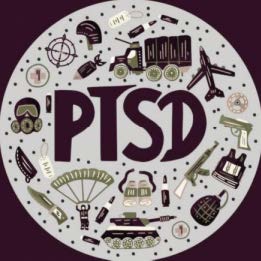BY JOHN RAFFAELE
After World War I, American soldiers came back home with a new and strange "affliction." It was called "shell shock." Before Post Traumatic Stress Disorder (PTSD) was developed as a diagnostic category in the 1960's and 70's, the psychiatric and helping community assisted soldiers who suffered from shell shock. It included symptoms that ranged from panic, depression, anxiety, sleeplessness, suicide, homicide and many other frightening things.

The cause of shell shock included exposure to violence, death and other catastrophic elements. Current psychology and medicine understands much more about PTSD and there are many more avenues for treatment and therapy. There are many US Military Veterans who are diagnosed with PTSD and utilize support from many different types of professionals.
Direct Support Professionals who work with people that experience PTSD utilize a series of competencies to help mitigate and lessen their symptoms. Direct Support Professionals also help PTSD sufferers develop coping strategies in daily activities of living. The National Alliance for Direct Support Professionals (NADSP) has a validated set of 15 competencies which are used in direct support practice cross-sector. Three of these competencies are directly linked to supporting those with PTSD.
Assessment is the first competency that must be utilized to strategize best ways to support someone with PTSD. The direct support professional should be knowledgeable about formal and informal assessment practices to respond to the needs, desires and interests of the people with PTSD. They initiate or assist in the initiation of an assessment process by gathering information (e.g., person's self-assessment and history, prior records, test results, additional evaluation) and informing the person supported about what to expect throughout the assessment process. The direct support professional conducts or arranges for assessments to determine the needs, preferences, and capabilities of people supported by using appropriate assessment tools and strategies, reviewing the process for inconsistencies, and making corrections as necessary. Lastly, the direct support professional discusses findings and recommendations with the person who has PTSD in a clear and understandable manner, following up on results and reevaluat ing the findings as necessary.
All too often people with PTSD are involved in crisis situations. They and their families are frequently visited by law enforcement and other emergency/crisis teams. Second in our list of NADSP competencies that need to be used, the direct support professional should be knowledgeable about crisis prevention, intervention and resolution techniques and should match such techniques to specific circumstances and individuals. The direct support professional identifies the crisis, defuses the situation, evaluates and determines an intervention strategy and contacts necessary supports. They continue to monitor crisis situations, discussing the incident with authorized staff and other professionals adjusting supports and the environment, and complying with regulations for reporting. The work of a good direct support professional can be the difference between someone's hospitalization/ incarceration – or could result in the de-escalation and resolution of a crisis.
The final competency area that direct support professionals must be versed in when supporting people with PTSD is Facilitation of Services. The direct support professional needs to be knowledgeable about a range of participatory planning techniques and must be skilled in implementing plans in a collaborative and expeditious manner. Direct support professionals maintain collaborative relationships with the person they support and all support team members (including family/friends), they follow ethical standards of practice (e.g., confidentiality, informed consent, etc.), and recognize his or her own personal limitations. Key to quality direct support practice, they assist and/or facilitate the development of an individualized plan based on that person's preferences, needs, and interests. They will facilitate the implementation of an individualized plan to achieve specific outcomes derived from the person's preferences, needs and interests. A competent direct support professional assists and/or facilitates the review of the achievement of individual participant outcomes.
Competent direct support practice is rooted in intentional use of competencies. When we look at the role of direct support professionals in the lives of people with Post Traumatic Disorder, and when direct support professionals are trained in these specific competencies, we can improve outcomes for people who experience and suffer with PTSD.
ABOUT THE AUTHOR: John Raffaele, MSW is Director Educational Services, National Alliance for Direct Support Professionals.